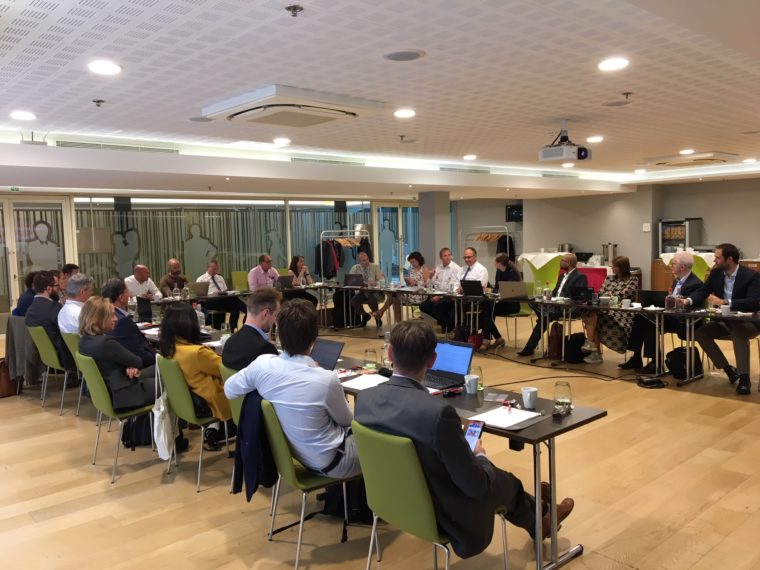24.09.2019
The Future of Education: Strategy, Cooperation and Learning Environments
On 17 September 2019, IRI UL attended the 6th and final workshop of the interdisciplinary expert team developing curriculum guidelines in the area of key enabling technologies and advanced manufacturing technologies. The initiative has been launched by the Executive Agency for Small and Medium-sized Enterprises (EASME) under the powers delegated by the European Commission, Directorate General for Internal Market, Industry, Entrepreneurship and SME (DG GROW). Key aim is to improve the quality and relevance of existing curricula for Key Enabling Technologies (KETs) and Advanced Manufacturing Technologies (AMT), and to promote better cooperation between industry and education and training organisations.
IRI UL researcher, Gregor Cerinšek, shared the experiences and good practices from our Erasmus+ Knowledge Alliance project PEOPLE, In his contribution, he underlined five key principles of the PEOPLE model of interdisciplinary university-business co-creation:
- Interdisciplinary and essentially collaborative: bringing together different disciplines and expertise, where engineering works hand in hand with social sciences and humanities. Key guiding principle is “dare to see things from other perspectives than your own”;
- Multi-sectoral and multi-stakeholder: involving industry professionals, university teachers and representatives of civil society and non-governmental organisations;
- People as co-creators: involved in all stages of product and service development process. Key guiding principle is “create with the people and not for them”;
- Rooted in ethnography: as a methodology to collect, analyse and understand the data and to generate in-depth insights about peoples’ behaviours, practices, and needs;
- In dialogue with theory and bringing up ethical considerations: understanding bigger contexts of emerging futures and world’s challenges.
For further information, please see the final report from the workshop (PDF): Future-Proofing Vocational Education for Manufacturing: Strategy, Collaboration Patterns and Learning Environment (Curriculum Guidelines for Key Enabling Technologies and Advanced Manufacturing Technologies)
